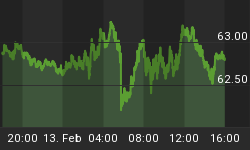"People should have control over their own retirement funds." This simple idea should get vigorous nods from anyone who believes in individual autonomy and personal responsibility.
Unfortunately, no idea remains simple once it enters the political arena. The current legislative debate about Social Security -- and how to fund it -- is neither simple nor clear. Still, the serious push to put the "control over their own retirement" idea into action was on the agenda in the 2000 presidential election, courtesy of the 1990s bull market; in turn it's easy to understand why the idea vanished from that agenda in 2001-2002, especially when you see this chart from the Wall Street Journal.
 Now the issue is back, and with even more momentum than it had four years ago -- and once more, the visible rise in 401(k) assets in 2003 explains why. The chart accompanied an article that explained how common it is for shareholders to "mismanage" their 401(k) accounts, via mistakes that range from the understandable to the inexplicable.
Now the issue is back, and with even more momentum than it had four years ago -- and once more, the visible rise in 401(k) assets in 2003 explains why. The chart accompanied an article that explained how common it is for shareholders to "mismanage" their 401(k) accounts, via mistakes that range from the understandable to the inexplicable.
Now, the Journal article didn't take a position on the political question, and I won't either; I will comment on the far more relevant question for an individual investor, namely what the return of this issue says about current state of market psychology in general. The Journal piece has a slight hint of "be careful what you ask for," though even that doesn't get at the true danger.
That danger can be summed up with two words, namely "performance chasing." This happens in every financial market, but is most visible in stocks and stock funds. For example: At the end of the 1990s, many investors figured they had gotten wise to the benefits of "index funds," which by then looked like an easy way to get the double-digit annual return that averages like the S&P 500 had earned for years.
They got double-digit all right. The massive ($79 billion) Vanguard 500 Index Fund, for example, had a 10.8 annual loss in the three years from 2000-2002.
Some think a return to the 1990s is possible by moving some of the money now going to Social Security into stocks; what's much more likely is that this represents a last gasp of the old bullish optimism, and a denial of the reality of the past five years.
The politics will be interesting to watch, at least as long as it lasts; just remember that the duration of the political debate is up to the trend in the stock market, not the other way around.
















